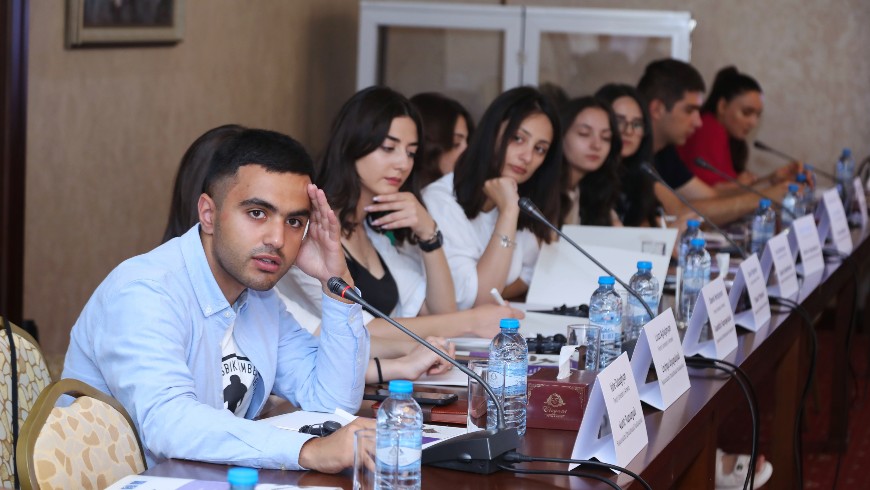Students from various universities of Armenia had the opportunity to get first-hand insights into the world of arbitration during the 4-day Summer School on Arbitration co-organised by the Council of Europe and Arbitrators’ Association of Armenia. Taught by the leading arbitration practitioners of Armenia, the Summer School addressed some fundamental issues of arbitration from the theoretical and practical points of view. Future lawyers engaged in an interactive discussion on the types of arbitration and its main advantages, referring also to the key legal tools used in the field of arbitration, as well as relationship between arbitral tribunals and domestic courts. In addition, students improved their verbal and written advocacy skills while working on the pilot arbitration case.
“The organisation of the Summer School on Arbitration and the participation in it was a unique and excellent opportunity for the law students considering the fact that there are mostly no specific or specialized courses envisaged by the academic programmes in the universities related to this field. This could be the reason why such an effective alternative mean of dispute settlement is not even considered,’’ said Sona Hayrapetyan, student from the Yerevan State University.
The event was organised in the framework of the joint project "Support to Judicial Reform - Enhancing the Independence and Professionalism of the Judiciary in Armenia," funded by the European Union and the Council of Europe and implemented by the Council of Europe in their Partnership for Good Governance II 2019-2022.





